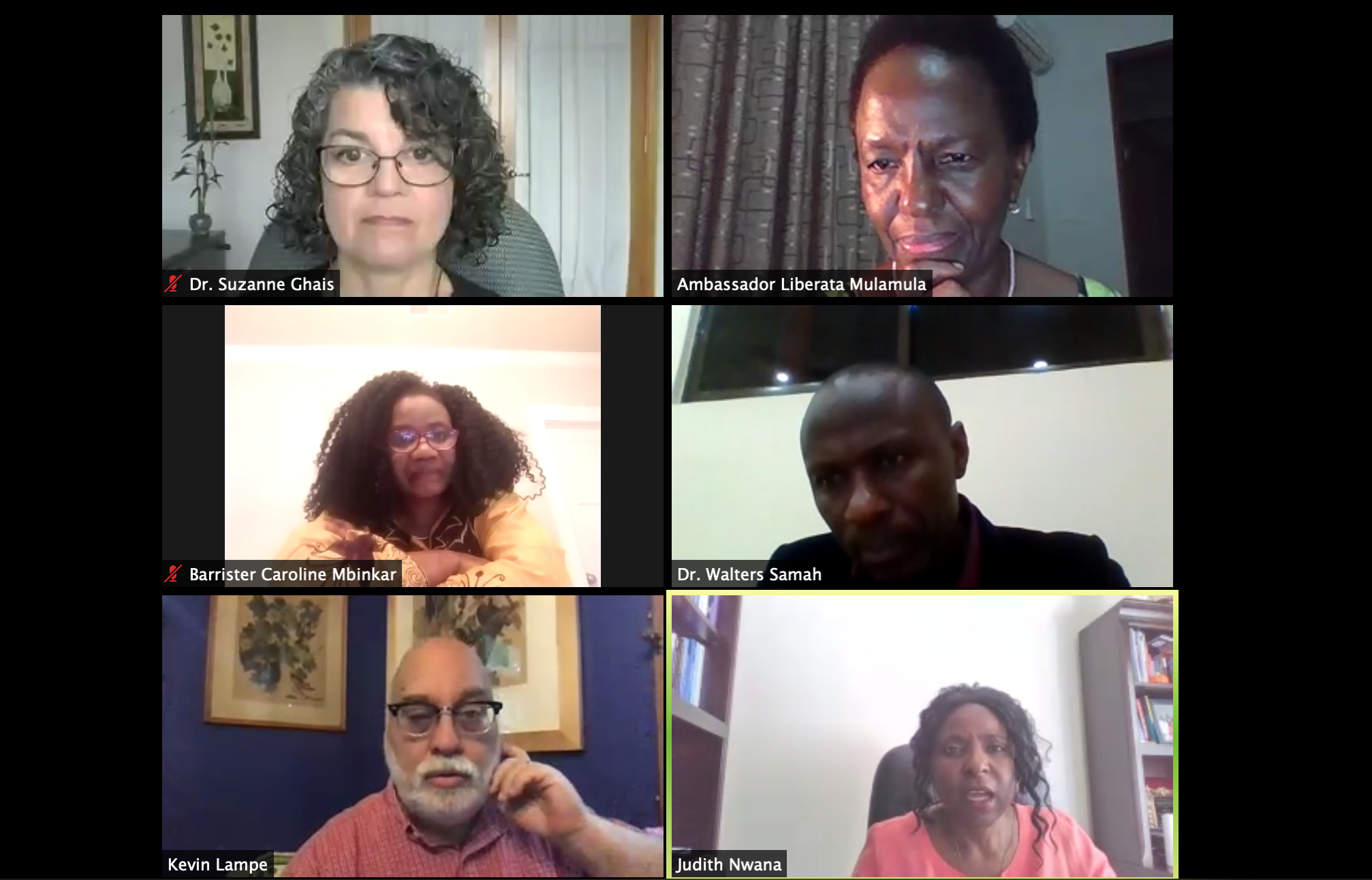Women Empowerment: A Long Way to Go
Women Empowerment and Gender Equality is still a distant dream for women in many parts of the world.

Resolving Armed Conflicts for Self-Determination in Africa: Key Considerations and Case Comparisons
The Coalition for Dialogue and Negotiation (CDN) provided a space
for both international actors and English-speaking Cameroonians to share practical solutions, comparative analysis, and concrete approaches towards peace through negotiation as well as effective frameworks for post negotiation. The virtual forum contributed to the hard work undertaken by over 200 Southern Cameroonians in the Coalition’s seven Working Groups.
Continued fighting in Southern Cameroon has since 2017 reportedly resulted in more than 12,000 deaths, arbitrary arrests, and the imprisonment of Southern Cameroonians. The government of the Republic of Cameroon reported the killing of at least 700 of its security forces and administrative personnel. Over 300 villages have been razed forcing the displacement of more than 900,000 and over 60,000 seeking refuge in other countries including Nigeria and the United States. An estimated 1 million children have been unable to attend school for the past three years, and approximately 1.9 million face severe hunger and other potential humanitarian crises. Several attempts of the government of the Republic of Cameroon to quench the armed conflict without addressing the root causes have continued to fail.
During the forum, Walters Samah, Interim Vice-President of CIT's Board of Directors, joined other panelists and presented a comparative case study on the Nigerian civil war also known as the Biafra war, exploring how it can inform the peace process in Cameroon given the parallels between the two.
Historically, Britain administered Southern Cameroon as part of Eastern Nigeria. If the territory had not voted to join Nigeria in 1961, it would have been part of the Biafra war. Some historians have expressed fears that the Anglophone Crisis may follow the path of the Biafra war in their challenge against state sovereignty.
In both cases, marginalization and identity questions are key drivers of the two armed conflicts.
Overview and international response to the Biafra war
The Nigerian government fought to reintegrate and reunify Nigeria, after the people of the country’s Eastern provinces seceded and declared the Republic of Biafra. Over a 30 months period, 1 to 3 million civilians died from fighting, disease or hunger. The government declared victory but failed to address the root causes of the conflict which led to the continued resurgence of separatist movements.
The Nigerian civil war created a victor-vanquish mentality that has persisted for over 40 years in the minds of the Igbos of Eastern Nigeria.
The international community, particularly major powers such the US, USSR, Europe, and African states adopted and supported the policy of “one Nigeria,” fearing that the secession of Biafra would fuel other secessionist movements throughout Africa. International organizations such as Oxfam and the World Council of Churches mobilized humanitarian assistance and media outlets published on the human suffering.
The government prioritized the continued use of the military option.
President Buhari infamously said: “The Igbos hate me for what happened during the Biafran War. I don’t have any regret, and as such do not owe any apology to them, in fact, if there is a repeat of the civil war again, I will kill more Igbos to save the country”.
Analysis and lessons for Cameroon
Nigeria’s military strategy failed to address the root causes of the problem. Similarly, the Cameroonian government has also opted for the military solution to the Anglophone crisis and is projecting a false narrative of an improving situation in a bid to shape national and international perceptions. However, the security and humanitarian situation in Cameroon have only deteriorated over the past 3 years. Instead, the government should undertake confidence building measures to de-escalate the conflict and work towards a genuine dialogue. The state should stop labeling Anglophone separatists as terrorists and start making compromises.
Anglophone separatists focused on online activism are failing to deliver a clear strategy, with common position and a clear agenda for solution. They are too focussed on the political dimension of the conflict, while disregarding the humanitarian and human rights dimensions.
Before seeking help from the international community, Anglophone leaders need to first and foremost resolve their differences and organize themselves. Currently, they are ill-prepared for negotiations. Separatists must also recognize that the decolonization process is over and cannot be revisited. They also must avoid abuses against civilians.
Conclusion
As shown in the Biafra war and the Anglophone crisis, the military option has shown its limitations. There is a need for a durable remedy to the Anglophone crisis which must address the root causes of the problem. This requires the revision and adoption of a new Constitution and include a peacebuilding agenda.
Mistrust between the parties in conflict requires an internationally facilitated mediation and while searching for a political solution to the crisis, stakeholders should not relegate humanitarian and human rights assistance to the background.
